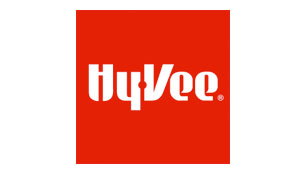Bill in Iowa Legislature would crack down on crypto ATM fraud

Kathy A. Bolten Apr 24, 2025 | 12:03 pm
3 min read time
702 wordsAll Latest News, Banking and FinanceA bill making its way through the Iowa Legislature would regulate what’s known as digital financial asset transaction kiosks, or cryptocurrency automatic teller machines, limiting the monetary transaction amount consumers can make on a daily basis among other things.
The Iowa Senate passed Senate File 449 on a 45-2 vote in late March. Sen. Rocky De Witt, R-Lawton and Sen. Adrian Dickey, R-Packwood, opposed the bill.
“Bringing some regulation to what’s kind of a Wild West scenario right now is a good thing,” said Adam Gregg, CEO and president of the Iowa Bankers Association. “We’re supportive of the bill.”
Crypto automatic teller machines allow consumers to use cash or a debit card to buy or sell cryptocurrency such as bitcoin.
Scammers are using the crypto ATMs to get unsuspecting consumers to “protect” their savings by depositing cash into the machine, according to the Federal Trade Commission. Instead of being converted into a cryptocurrency, the money is deposited in the scammers’ bank account. During the first six months of 2024, fraud losses to bitcoin teller machines exceeded $65 million, according to the commission.
Gregg has previously cautioned business owners about allowing bitcoin teller machines on their properties.
“It’s the means by which we are seeing scammers of our bank customers actually get their hands on the funds,” Gregg said this week. “I would renew the opportunity to say to Iowans that if a stranger or somebody you’ve met online is asking you to solve a problem by sending money to them through a crypto ATM, that is a major red flag. You should use extreme caution in doing that.”
The bill in the Iowa Legislature would:
- Limit consumer transactions at a crypto ATM to $1,000 a day. It would also limit transactions of new customers of an operator to $10,000 within the first 30 days of opening an account.
- Limit operators’ ability to charge excessive transaction fees. Operators could charge no more than $5 or 15% of the dollar equivalent of the transaction.
- Require operators to provide written disclosures about the U.S. currency equivalency involved in the transaction and the dollar amount the operator would collect in fees. If operators don’t provide a process to refund or reverse the transaction, they would be required to provide consumers with a warning that all transactions are final. Operators would also be required to provide consumers with a written warning cautioning them that “fraud often starts with contact from a stranger who is initiating a dishonest scheme.”
- Require operators to provide consumers with a receipt for the digital transaction.
- Require operators to provide Iowa’s division of banking with a list of where all digital financial asset automatic teller machines are located in the state.
Operators of bitcoin teller machines who violate the proposed law could face up to $10,000 in civil penalties for each infraction.
The Iowa House’s commerce committee approved the proposed bill on April 2. The full House has not yet voted on the bill.
At least three other states – Minnesota, California and Vermont – have implemented daily transaction limits for cryptocurrency ATMs. In February, legislation was introduced in the U.S. Senate that would establish transaction limits for new customers of cryptocurrency ATMs and provide full refunds for fraudulent transactions.
Also in February, Iowa Attorney General Brenna Bird filed lawsuits against Bitcoin Deport and CoinFlip, the state’s two largest cryptocurrency ATM operators. According to their websites, Bitcoin Depot operates 436 crypto ATMS in Iowa; CoinFlip operates 51.
Bird, in the lawsuits, alleges that the companies are profiting off of Iowans who are tricked into depositing thousands of dollars into the crypto ATMs.
Bitcoin Depot takes a 23% cut of the money Iowans send through the machines; CoinFlip takes a 21% cut, according to Bird. The lawsuit also alleges that Bitcoin Depot deceives Iowans about its refund policy. Bird is suing both companies for violating the Iowa Consumer Fraud Act.
Lobbyists for Community Bankers of Iowa, Iowa Bankers Association, Fareway Stores Inc., AARP Iowa and Iowa State Sheriffs’ & Deputies’ Association have registered in support of the legislation. Lobbyists for Bitcoin Depot Operating LLC and Coinflip oppose the bill.
A spokesperson for the Iowa Credit Union League said the group “hasn’t weighed in on the bill.”

Kathy A. Bolten
Kathy A. Bolten is a senior staff writer at Business Record. She covers real estate and development, workforce development, education, banking and finance, and housing.










